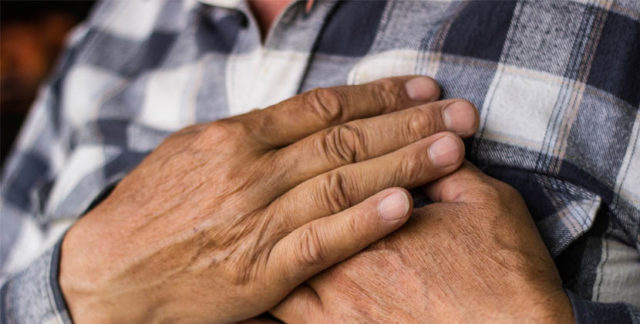After you’ve suffered a heart attack, you can also struggle with a lesser-known, but fairly common condition: depression or anxiety, sometimes known as broken-heart syndrome. February is American Heart Month, a time to raise awareness around the prevalence of heart disease, prevention and recognition of the warning signs of heart disease or of conditions that can follow a heart attack like depression. North Memorial Health provides expert care to patients across a broad range of healthcare including heart and vascular and mental health issues.
Heart disease is still the leading cause of death for both women and men in the United States. According to the Centers for Disease Control and Prevention, it accounts for 1 in 4 American deaths, and about 735,000 people experience a cardiac event each year in the United States. The lesser known fact is that one-third of heart-attack patients experience depression and 20 percent develop major depression after a heart attack.
About Post-Heart Attack Depression
 “The rate of post-heart attack depression has a lot higher complication rate and a significant rate of suicide,” Cardiologist Paul R. Sander says. He likens the sudden onset to postpartum depression—common changes in your brain chemistry after a major medical and lifestyle change can kick off depressive symptoms. “It is also similar to losing a loved one, bereavement, or grief, and tends to be a little bit higher in younger, physically fit men,” he says. “It can be related to a change in identity, and it can become really severe.”
“The rate of post-heart attack depression has a lot higher complication rate and a significant rate of suicide,” Cardiologist Paul R. Sander says. He likens the sudden onset to postpartum depression—common changes in your brain chemistry after a major medical and lifestyle change can kick off depressive symptoms. “It is also similar to losing a loved one, bereavement, or grief, and tends to be a little bit higher in younger, physically fit men,” he says. “It can be related to a change in identity, and it can become really severe.”
At North Memorial Health, our strong Cardiac Rehabilitation Program walks with you after your cardiac event, helping to rebuild your life and stay active and connected.
“Cardiac rehab is really remarkable,” Dr. Sander says. “It’s the best treatment to move forward. Education, exercise, and talking about your experience and sharing it with others is very helpful in those first couple of months.”
Signs and Symptoms of Post-Heart Attack Depression
Living with depression isn’t the only reason that you need to keep an eye on your health after a heart attack. Depression after a heart attack is also associated with an increased risk of death—not just suicide, but also cardiac and other causes of death.
Signs and symptoms of post-heart attack depression may include:
- Struggling to accept lifestyle changes you may need to integrate into your life
- Trouble completing daily routines
- Loss of interest in activities you used to enjoy
- Increased tearfulness or isolation
- Sadness that persists longer than two weeks
- Suicidal thoughts and/or feelings
“We have to screen for it and actually be comfortable getting people in treatment for it earlier,” Dr. Sander says. “If someone has a broken arm, we cast it right away. If we are seeing significant depression, we need to treat it right away, and always follow up.”
For more information call your primary care provider at 763-581-CARE or the Cardiology Triage Line at 763-581-5403 for resources.
North Memorial Health screens each patient for post-heart attack depression using measures and observations during the course of cardiac rehabilitation, which usually involves 20 to 30 visits in the first two months after the cardiac event.
Those who need more treatment can be referred for mental health services, and also get medication prescribed if or when it is needed. “Most people’s depression resolves in the first year,” Dr. Sander notes, adding that for those who don’t, ongoing therapy and medication may be necessary.
Cardiac rehabilitation will help patients:
- Have fun and enjoy life
- Recover from a heart event
- Modify cardiac risk factors
- Learn proper exercise techniques
- Learn to live a healthier lifestyle
- Improve strength and endurance
Patients work with our highly trained therapists and physicians—plus other patients—as a team to accomplish their post-heart attack goals. Exercise physiologists and registered nurses with special training oversee the program, integrating nutrition, stress management, pharmacology, EKG interpretation, exercise program planning and education for the best outcomes.
“We see every patient as they are approaching discharge to enroll them in cardiac rehab,” Dr. Sander says. “Every hospital system here has good cardiologists and heart surgeons, but the treatment plan afterward, which is hardwired into our program, is very unique and well-coordinated.”
If you’d like more information or help with post-heart attack depression for you or a love one, call your primary care provider at 763-581-CARE or the Cardiology Triage Line at 763-581-5403 for resources.

